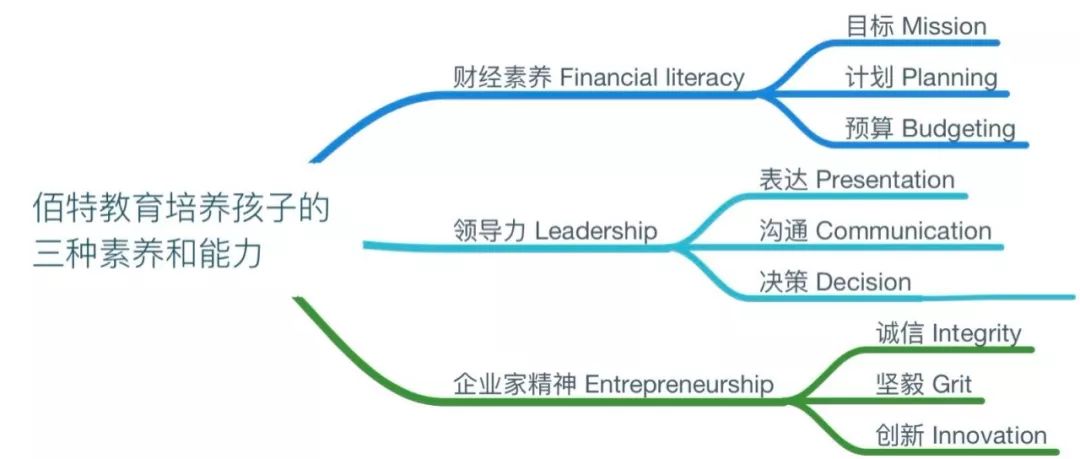
父母用企业家精神培养孩子,那么这些年轻的孩子将来有望成为商业领袖或新兴企业的创始人。随着自由经济的发展,年轻人大量涌入新兴行业,“企业家精神”日渐成为一种重要的技能。
要激发孩子们身上的“企业家能力”,父母可以通过培养孩子在成长过程中必须具备的“情商技能”来实现。比如:适应风险的能力、有效解决问题的能力、积极面对失败的能力。
纽约大学Langone儿童研究中心的Andrea Vazzana博士是儿童精神病学的临床助理教授,他认为:社交情商技能对塑造孩子的行为很重要,父母对孩子情商技能的培养,越早开始越好。
下面有5个关于培养孩子企业家素质的小贴士,对你们会有所帮助。
一、有效解决问题的模拟训练。
从小训练孩子在日常生活中发现商业理念和解决问题的能力。当孩子们遇到问题的时候,家长可以采取头脑风暴的方法,与孩子一起解决问题,帮助他们认识问题、思考可行的解决方案、权衡利弊,选择最佳解决方案。Vazzana博士认为:父母在对解决问题的任务做出分解、真实的描述问题、与孩子探讨问题这几个方面做得越多,孩子也将受益更多。
二、帮助孩子从失败中学习。
作为父母,你会影响孩子尝试、失败、学习、再次尝试的意愿,这些意愿正是企业家的必备素质。
要做到这一点,父母可以把批评作为孩子学习的契机,帮助孩子练习从失败中学习的能力,也可以采用头脑风暴的方法让孩子自己思考,如果下一次再遇到同样的事情,他们可以采取哪些不同的应对方法。
当你给孩子提改进的建议时,要注意从正反两方面给予孩子具体的赞扬。这就是Vazanna博士所说的“反馈三明治方法”,在不一味遭受严苛批评的情况下,孩子更能够获取到积极的信息。(想要让孩子获取到积极的信息,就不要一味地对他们施加严苛的批评)
三、让孩子自己做决定。
企业家能做出自信而果断的决定,源自于他们孩童时期的独立个性。
当孩子处于学步期时,父母就可以让他们自己选择吃菠菜还是西蓝花、自己选择要穿的衣服。Vazanna博士认为:家长不仅要让孩子知道自己做决定的感受,而且要让他们知道这是一种很棒的感受。
当孩子还小的时候,家长应该控制孩子所面临的选项的数量。Vazanna博士认为:如果选项太多,孩子会不知所措。等孩子长大以后,家长则需要放松对他们的限制,并且在面临重要决定的时候相信他们。
四、培养孩子掌控自己情绪的意识。
企业家时刻都承受着巨大的风险,但是他们适应风险的能力并不是一夜之间练就而成的。孩子们在小的时候需要家长给予他们自由,去探测他们自己的风险承受能力并学习掌控对风险的恐惧。
当孩子面临风险时,家长可以先给予一定的帮助,然后再让他们独立承担。Vazanna博士认为:孩子们所接受的(承担风险的)任务,难度应该逐渐增加,这样才有利于他们养成掌控自己情绪的意识。通过让他们在掌控情绪方面取得一个又一个的成功,他们才会在面对风险的时候充满信心地去承担。
五、教孩子们勇于积极地挑战常规。
成年人往往教孩子要盲目地遵守规则,这种默守陈规的习惯,会抑制孩子们身上的企业家精神。相反,我们应该教孩子认识事物的基本原理,采用积极的方式去挑战固有的常规。让他们思考有哪些地方是需要改变的?为什么要改变?要怎样改变?在这些方面,家长要以身作则。Vazanna博士认为:父母之间以及父母和孩子之间的交流方式,是孩子的示范榜样。你的行为会帮助孩子认识到什么情况下该质疑常规,什么时候该遵守规则。
下图是“阿福童悦读”所专注的方向。如果您对阿福童悦读有兴趣,可向我们申请免费书目。

附英文原文(来自网络):
How to Raise Entrepreneurial Kids
By: Nadia Goodman • Guest Writer
Tomorrow’s business leaders and startup founders will be today’syoung kids whose parents have raised them with an entrepreneurial spirit — askill that is increasingly important as young people flood the startup worldand the freelance economy grows.
As a parent, you inspire entrepreneurship byfostering the emotional skills your child will need, such as comfort with risk,effective problem solving, and a positive attitude toward failure.
“It’s all about shaping the child’sbehavior,” says Dr. Andrea Vazzana, clinical assistant professor of childpsychiatry at New York University Langone’s Child Study Center. “Socialemotional skills are important and the earlier you can help a child with them,the better.”
Here are five parenting tips to help you fosterentrepreneurial qualities in your kids.
1. Model effective problem solving. To prepare kids to find business ideas in everyday life,bolster their problem solving skills while they’re young. When problems come upin your child’s life, brainstorm solutions together. Help them identify the problem,think of all the possible solutions, weigh the pros and cons, and choose thebest option.
“The more parents can break down what’s neededwithin that problem solving task, really verbalize it, and talk it out with thechild, the better off the child will be,” Vazanna says.
2. Help kids learn from failure. As a parent, you influence your child’s willingness to try,fail, learn, and try again — an essential skill for entrepreneurs. To do this,frame criticism as a learning opportunity by helping your child practice theskill or brainstorm what they could do differently next time.
When you offer suggestions for improvement,bookend them with specific praise on either side. “This is called a feedbacksandwich,” Vazanna says. “The child doesn’t feel so harshly criticized; theycan take away a positive message.”
3. Let kids make decisions. An entrepreneur’s confident decisions are rooted in early independence. Whenkids are toddlers, you might give them the choice of spinach or broccoli withdinner, or let them choose their outfits. “You’re exposing them to what itfeels like to make a decision, and helping them feel good for being able to dothat,” Vazanna says.
When kids are young, limit choices to a fewoptions. “Kids can get overwhelmed if they have too many choices,” Vazannasays. As they get older, loosen the reins and trust them with bigger decisions.
4. Foster a sense of mastery. Entrepreneurs take huge risks, but being comfortable withuncertainty doesn’t happen overnight. Kids need the freedom to test theirboundaries and master fears while they’re young.
When your child faces a risky situation, helpat first, then transition them toward independence. “Tasks should beprogressively more difficult,” Vazanna says. “This gives the child a sense of mastery.”By setting them up to succeed, you empower them to feel confident taking risks.
5. Teach constructive ways to challenge thestatus quo. Kids are often taught tofollow the rules blindly, a habit that inhibits entrepreneurship. Instead,teach kids to challenge norms constructively by articulating their rationale.Ask, what do they think needs to change, and why? What do they propose instead?
You need to lead by example. “The ways parentstalk to each other and to children models that behavior,” Vazanna says. Yourbehavior helps kids understand how to question norms diplomatically and when tojust follow the rules.


